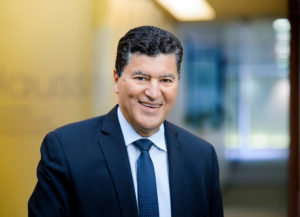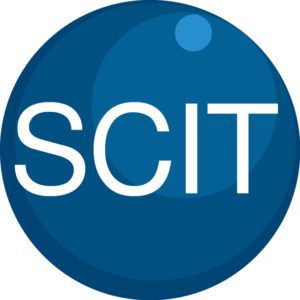
Mini-Grand Rounds: In the frontlines of the COVID-19 pandemic
Sam Shen, MD, MBA
Associate Chief Quality Officer/Patient Safety Officer, SHC
Vice Chair, Clinical Operations & Quality
Clinical Associate Professor, Emergency Medicine
Stanford University
7:00am – 7:30am, Zoom
The Stanford Radiology Mini-Grand Round live session events are by invitation only. Invites with link to Zoom video will be sent via email to Department faculty and staff only. Recordings will be made available to the public shortly after the event.

Mini-Grand Rounds: Well-being during the COVID-19 pandemic
Terry Desser, MD
Professor, Radiology
Stanford University
7:00am – 7:30am, Zoom
The Stanford Radiology Mini-Grand Round live session events are by invitation only. Invites with link to Zoom video will be sent via email to Department faculty and staff only. Recordings will be made available to the public shortly after the event.

Thursday MIPS Roundtable: Dr. Michelle James & Dr. Ted Graves
1:30-2:00 PM – Michelle L. James, Ph.D.
Neuroimmune Imaging Research and Discovery (NiRD) Lab
Assistant Professor of Radiology and of Neurology
Stanford University
2:00-2:30 PM – Edward “Ted” Graves, Ph.D.
Imaging Radiobiology Laboratory, Division of Radiation Oncology Medical Physics
“Using Imaging to Study Radiation Biology”
Associate Professor of Radiation Oncology (Radiation Physics) and, by courtesy, of Radiology
Stanford University
MIPS Roundtables will be every Thursday from 1:30-2:30pm showcasing various topics and are open to all interested.
Please note Zoom information does change week to week.
4/16 Meeting URL: https://stanford.zoom.us/j/406957830
Dial: +1 650 724 9799 or +1 833 302 1536
Meeting ID: 406 957 830

Mini-Grand Rounds: COVID-19: Meeting the Challenge with Data Science
Tina Hernandez-Boussard, MPH, PhD
Professor, Radiology
Stanford University
7:00am – 7:30am, Zoom
The Stanford Radiology Mini-Grand Round live session events are by invitation only. Invites with link to Zoom video will be sent via email to Department faculty and staff only. Recordings will be made available to the public shortly after the event.

Mini-Grand Rounds: Aftershocks: The Coronavirus Pandemic and The New World Disorder
Colin H. Kahl
Senior Fellow at the Freeman Spogli Institute for International Studies
Steven C. Házy Senior Fellow at the Center for International Security and Cooperation
Professor, by courtesy, of Political Science
Co-director of the Center for International Security and Cooperation
7:00am – 7:30am, Zoom
The Stanford Radiology Mini-Grand Round live session events are by invitation only. Invites with link to Zoom video will be sent via email to Department faculty and staff only. Recordings will be made available to the public shortly after the event.

PHIND Seminar Series: The Behaviorome in Precision Medicine
Kevin Schulman, M.D.
Professor of Medicine (Hospital Medicine) and, by courtesy, of Economics a the Graduate School of Business
Stanford University
12:00pm – 1:00pm Seminar & Discussion
RSVP here: https://www.onlineregistrationcenter.com/KevinSchulman
Meeting URL: https://stanford.zoom.us/j/514973612
Dial: +1 650 724 9799 (US, Canada, Caribbean Toll) or +1 833 302 1536 (US, Canada, Caribbean Toll Free)
Meeting ID: 514 973 612
ABSTRACT
The revolution in biomedical technology that is allowing us to develop the concept of precision medicine has a fatal flaw. Medical science has focused on risk prediction in the hopes of using risk information to influence health behaviors. However, there is little evidence to support the notion that risk information alone influences individual behavior at scale. Concurrent with the development of the field of precision medicine is an even larger revolution in understanding of the behavior of populations using digital technology. Marketing, the science underlying these advances, offers tools and insights to help guide our understanding of how to translate risk information into behavior change. To date, marketing has been used for mass-customization of products and services outside of clinical medicine. For example, each of us has the opportunity to enjoy streaming video programs that suit our tastes and desires. This delightful consumer experience developed in an iterative fashion based on tight linkages between prediction and behavior. In this case, data are used to develop population segments that are likely to respond similarly to movie suggestions. In this talk, we’ll discuss how a better understanding of behavior in the health care realm, the Behaviorome, will help solve the last mile problem of Precision Medicine.
ABOUT
Dr. Schulman serves as Professor of Medicine, Associate Chair of Business Development and Strategy in the Department of Medicine, Director of Industry Partnerships and Education for the Clinical Excellence Research Center (CERC) at the Stanford University School of Medicine, and, by courtesy, Professor of Economics at Stanford’s Graduate School of Business.
Dr. Schulman’s research interests include organizational innovation in health care, health care policy and health economics. With over 300 original articles, 90 review articles/commentaries, and 40 case studies/book chapters, Kevin Schulman has had a broad impact on health policy (h-index = 61). His peer-reviewed articles have appeared in the New England Journal of Medicine, JAMA, and Annals of Internal Medicine. He is a member of the editorial/advisory boards of the American Heart Journal, Health Policy, Management and Innovation (www.HMPI.Org), and Senior Associate Editor of Health Services Research.
At Duke’s Fuqua School of Business, Dr. Schulman oversaw the growth of the health sector management program, graduating almost 1500 students. He is the Founding Director of the unique Master of Management in Clinical Informatics program (MMCi), originally offered through the Fuqua School of Business and now housed in the Duke University School of Medicine. He has served as a Visiting Professor in General Management at Harvard Business School from 2013-2016, and a visiting scholar from 2016-2018. At Stanford, he teaches a course on Health IT and Strategy at the GSB.
He is the Founding President of the Business School Alliance for Health Management (http://www.BAHM-Alliance.Org), which is a consortium of the leading business schools offering health management programs.
He is an elected member of ASCI and AAP.
Hosted by: Sanjiv Sam Gambhir, M.D., Ph.D.
Sponsored by the PHIND Center and the Department of Radiology

Please note this seminar is now cancelled and will be rescheduled for a future date. Please contact Ashley Williams (ashleylw@stanford.edu) with any questions or concerns. Thank you for your understanding!
IMAGinING THE FUTURE: “Journey Through Academia, Government and Industry: Lessons Learned”
Elias Zerhouni, M.D.
Professor Emeritus
John Hopkins University

Mini-Grand Rounds: The short-run challenges and long-run opportunities of working from home
Nicholas Bloom, PhD
Professor (by courtesy), Economics
Senior Fellow, Stanford Institute for Economic Policy Research
7:00am – 7:30am, Zoom
The Stanford Radiology Mini-Grand Round live session events are by invitation only. Invites with link to Zoom video will be sent via email to Department faculty and staff only. Recordings will be made available to the public shortly after the event.

“Tumor-Immune Interactions in TNBC Brain Metastases”
Maxine Umeh Garcia, PhD
ABSTRACT: It is estimated that metastasis is responsible for 90% of cancer deaths, with 1 in every 2 advanced staged triple-negative breast cancer patients developing brain metastases – surviving as little as 4.9 months after metastatic diagnosis. My project hypothesizes that the spatial architecture of the tumor microenvironment reflects distinct tumor-immune interactions that are driven by receptor-ligand pairing; and that these interactions not only impact tumor progression in the brain, but also prime the immune system (early on) to be tolerant of disseminated cancer cells permitting brain metastases. The main goal of my project is to build a model that recapitulates tumor-immune interactions in brain-metastatic triple-negative breast cancer, and use this model to identify novel druggable targets to improve survival outcomes in patients with devastating brain metastases.
“Classification of Malignant and Benign Peripheral Nerve Sheath Tumors With An Open Source Feature Selection Platform”
Michael Zhang, MD
ABSTRACT: Radiographic differentiation of malignant peripheral nerve sheath tumors (MPNSTs) from benign PNSTs is a diagnostic challenge. The former is associated with a five-year survival rate of 30-50%, and definitive management requires gross total surgical with wide negative margins in areas of sensitive neurologic function. This presentation describes a radiomics approach to pre-operatively identifying a diagnosis, thereby possibly avoiding surgical complexity and debilitating symptoms. Using an open-source, feature extraction platform and machine learning, we produce a radiographic signature for MPNSTs based on routine MRI.

Radiomics and Radio-Genomics: Opportunities for Precision Medicine
Zoom: https://stanford.zoom.us/j/99904033216?pwd=U2tTdUp0YWtneTNUb1E4V2x0OTFMQT09
Pallavi Tiwari, PhD
Assistant Professor of Biomedical Engineering
Associate Member, Case Comprehensive Cancer Center
Director of Brain Image Computing Laboratory
School of Medicine | Case Western Reserve University
Abstract:
In this talk, Dr. Tiwari will focus on her lab’s recent efforts in developing radiomic (extracting computerized sub-visual features from radiologic imaging), radiogenomic (identifying radiologic features associated with molecular phenotypes), and radiopathomic (radiologic features associated with pathologic phenotypes) techniques to capture insights into the underlying tumor biology as observed on non-invasive routine imaging. She will focus on clinical applications of this work for predicting disease outcome, recurrence, progression and response to therapy specifically in the context of brain tumors. She will also discuss current efforts in developing new radiomic features for post-treatment evaluation and predicting response to chemo-radiation treatment. Dr. Tiwari will conclude with a discussion on her lab’s findings in AI + experts, in the context of a clinically challenging problem of post-treatment response assessment on routine MRI scans.